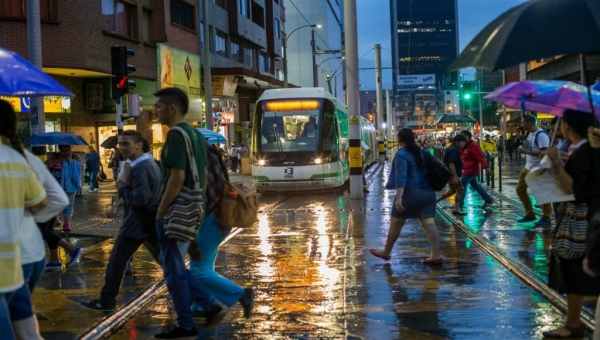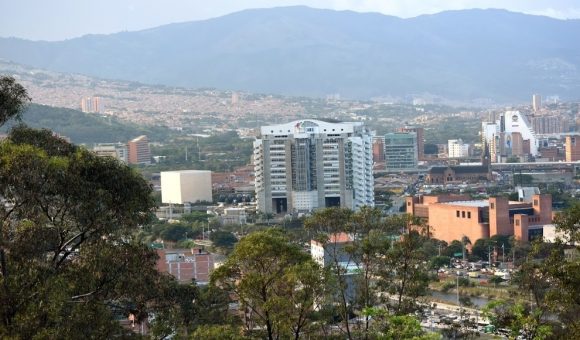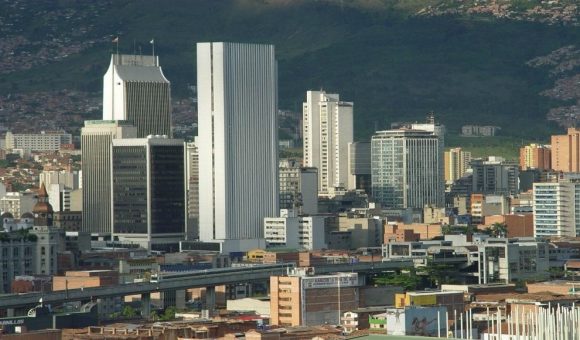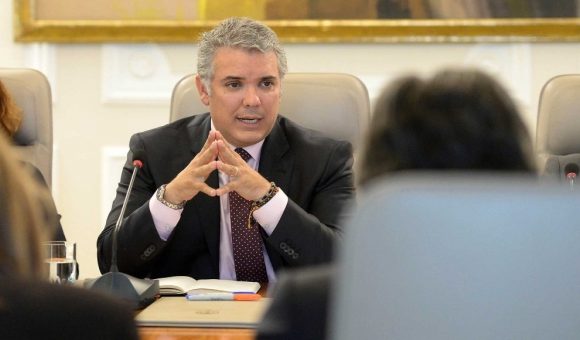‘Medellin Como Vamos 2016’ Positive, but Pollution, Traffic, Health Biggest Concerns

The annual “Medellin Como Vamos” (“How Are We Doing?”) citizen survey released December 6 found that most residents are generally positive about living conditions. But pollution, traffic and health services remain as top concerns.
Medellin’s air pollution is mainly the result of a huge increase in vehicle traffic combined with large numbers of obsolete, black-smoke-belching trucks and buses, plus blue-smoke-belching motorcycles (see: “Medellin, Bogota Suffer Nation’s Worst Air Pollution,” Medellin Herald, November 24, 2016)
A massive, accelerated conversion of the Medellin vehicle fleet to modern, ultra-low-emissions Euro-6 or U.S. EPA 2010 (and later) engine technologies eventually could slash vehicle emissions by more than 90% — drastically reducing respiratory inflammation and diseases. Unfortunately, vehicle fleet turnover isn’t moving fast enough.
Noise pollution is also a big concern, with 81% saying they’re unhappy about excessive noise from certain businesses or neighbors (including bars, night-clubs, fireworks) and vehicle noise in certain areas.
As for mobility, 37% of citizens said that they now use taxis, mini-buses or private buses, while 34% use the Metro trains, the “Metroplus” rapid-transit buses or the “Metrocable” aerial trams. Another 20% said they only use private cars or motorcycles, while the remaining 10% said they walk or use bicycles.
In total, 44% of Medellin’s citizens complain that their commutes have lengthened recently because of ever-growing traffic jams.
As for crime index, 73% of citizens said they feel secure in their neighborhoods — but only 51% said that the entire city is relatively safe. In total, 15% of citizens said they had been victims of some sort of crime in the past year, but only 40% bothered to report the crime.
As for public health services, Colombia’s national health-sector financial crisis has been getting worse every year, with ever-more hospitals and clinics severing ties with troubled “EPS” organizations — similar to the health maintenance organizations (HMOs) in the United States. Nationally, various EPS organizations are hundreds of millions of dollars behind in reimbursement for clinic and hospital services.
In total, 70% of Medellin citizens surveyed said that they had required some sort of medical attention in the last year. Of those, 86% actually got attention, while 14% didn’t.
More than 60% of those with some illness first went to a hospital or clinic emergency ward, while the remainder sought appointments from an EPS. Among the latter group, 62% had to wait one-to-five days for service, while the remaining 38% waited six or more days for service.
In total, 56% of those receiving health services said they were “satisfied,” while 24% were “unsatisfied” and the other 20% neutral, the survey found.
The survey of 1,504 homes in all areas and all economic strata — conducted by polling firm Ipsos-Napoleon Franco – employed a model that focused upon perceptions of relative economic well-being, job opportunities, personal activities, urban habitat, perceptions of local government and competitiveness.
The over-all result showed that 77% consider Medellin as “on the right track,” while 84% think Medellin is a “satisfactory” place to live and 80% are proud of their city.
Some 21% of citizens rank themselves as “poor” economically, with the Northeastern zone considered as the poorest of all city neighborhoods.
Another 29% of citizens consider that Medellin suffers relatively high inequality in terms of salaries, quality of health-care and quality of housing. Another 29% of citizens stated that more investment in education would reduce inequality.
Citizens overwhelmingly rank health, employment and education as top priorities for the city.
In total, 59% of citizens expressed optimism about Medellin’s economic growth, while 34% said that their own economic situation has improved recently.
In homes that have children, 71% of those surveyed said that they were satisfied with the schooling received, while 11% were unsatisfied and 18% were neutral.
As for perceptions about city government, 90% of citizens said they have a favorable impression of Medellin Mayor Federico Gutierrez, while 58% said they believe his initiatives so far have been “good” or “very good,” the survey found.
















